 An Axiological Process Ethics
An Axiological Process Ethics
Rem B. Edwards, 2014
This book brings together two philosophical perspectives: process philosophy and Hartmannian formal axiology to argue for a more appealing and persuasive approach to process ethics. The implications for spiritual practice bring fresh meaning to Whitehead’s call to live, live well, live better. “Whitehead’s vision changes the way we think of ethics and values, but it does not include an ethical system. One problem has been that it has focused attention sharply on individual occasions of experience. Joseph Bracken has shown the need to attend to the unity of persons and societies in a fuller way. Edwards builds on that insight and incorporates other contributions into a richly articulated and highly original post-Whiteheadian account of ethics and values.” ~ John B. Cobb, Jr., Professor Emeritus, Claremont School of Theology
 Panentheism and Scientific Naturalism:
Panentheism and Scientific Naturalism:Rethinking Evil, Morality, Religious Experiecne, Religious Pluralism, and the Academic Study of Religion
David Ray Griffin, 2014
Can scientific naturalism, according to which there are no interruptions of the normal cause-effect relations, be compatible with divine activity, religious experience, and moral realism? Leading process philosopher of religion David Ray Griffin argues that panentheism provides the conceptual framework to overcome the perennial conflicts between these views, with important implications for religious pluralism, the problem of evil, and the academic study of religion. Panentheism—God as the soul of the world—explains how theism can be fully natural while still portraying God as distinct from and more than the world. Griffin’s Panentheism and Scientific Naturalism is an essential source for philosophers of religion and others seeking to reconcile faith with science and Christianity with other religions.
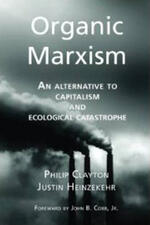 Organic Marxism:
Organic Marxism:An Alternative to Capitalism and Ecological Catastrophe
Philip Clayton and Justin Heinzekehr, 2014
This revolutionary book fuses the enduring legacy of socialism—government for the common good ”with the best of the environmental movement and the newest insights from sustainability studies. The result is a manifesto in the tradition of Bill McKibben’s Eaarth” a roadmap forward in the face of the growing environmental catastrophe, which is the most complex crisis humanity has ever faced. Catherine Keller writes, “What an unexpected, discomforting and important work! If Marxism seemed to be abandoned in the West to a few academic leftists and nostalgic activists, the authors bring it roaring back into relevance.” American conservatives like to say that Marxism was destroyed by its opponents and by the mistakes of Marxist governments. Organic Marxism provides the definitive answer to this charge.
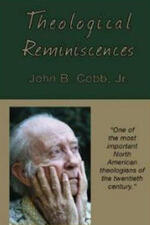 Theological Reminiscences
Theological ReminiscencesJohn B. Cobb, Jr., 2014
In these remarkably intimate and forthcoming “reminiscences,” theologian and philosopher John B. Cobb, Jr., reflects on major theological developments of the last sixty years, from the Latin American, feminist, and black liberation theologies, to Vatican II, the “death of God,” and the shift from existentialist to process philosophies. A major conviction of Cobb’s work–amply displayed in these reflections–is that theology must engage contemporary issues. To that end, he followed a transdisciplinary approach throughout his career, integrating insights from many different areas of study and bringing different specialized disciplines into fruitful communication. As a result, Cobb has been influential in a wide range of disciplines, including theology, ecology, economics, biology and social ethics. His descriptions of these encounters are rich in personal detail and refreshingly honest.
 Integrative Process:
Integrative Process:Folettain Thinking from Ontology to Administration
Margaret Stout and Jeannine M. Love, 2015
Mary Parker Follett, a Progressive Era theorist called the “prophet of management” by Peter Drucker, is winning transdisciplinary converts as the world catches up with her. But as the authors argue, her work cannot be appreciated without understanding its grounding in relational process ontology. This book not only provides that necessary key, but it presents in one volume the major ideas and disciplines found in her work. In this peer-reviewed volume, the authors provide the structure, but fill it with Follett’s own words–a wonderfully wise decision that lets readers be converted by Mary Parker Follett herself.
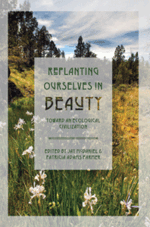 Replanting Ourselves in Beauty:
Replanting Ourselves in Beauty:Toward an Ecological Civilization
Jay McDaniel and Patricia Adams Farmer, eds., 2015
We live in an extraordinary moment in history–an oddly beautiful time–painted with the starkly contrasting colors of undeniable loss and rich possibility. The Universe is rife with freshness, and we are part of the adventure: part of the urgent call to return to the wisdom of the Earth and replant ourselves in Beauty.” So write the editors in their introduction to this rich collection of essays by scholars, writers, artists, activists, educators, and clergy who have been influenced by the thinking of Alfred North Whitehead. Coming from a variety of cultural and religious traditions, the essays are all about the Beauty that flourishes in the fertile soil of sustainable community, relational thinking, imagination, creativity, the arts, stories of everyday people, as well as in our creative action toward the healing of our planet.
 For Our Common Home:
For Our Common Home:Process-Relational Responses to Laudato Si'
John B. Cobb, Jr. and Ignacio Castuera, eds., 2015
On June 18, 2015, Pope Francis addressed the world about the fate of the planet, focusing especially on the threat of climate disaster. He called for a worldview that would emphasize the interconnectedness of things and what he called an “integral ecology.” In Claremont, CA, earlier the same month, a conference called “Seizing an Alternative,” keynoted by Bill McKibben, also focused attention on climate change and called for a new worldview that would reflect the interconnectedness of all things, or an “ecological civilization.” The conference leaders saw that their aims and hopes now had a global leader. The goals of an integral ecology and an ecological civilization are the same. The task now for those who care about the fate of the world is to give whatever support they can to Pope Francis. As a first step, more than 60 persons involved in that conference answered the pope’s call for dialogue and wrote responses to the pope’s encyclical letter, Laudato si’. This book is a collection of those essays, written by people representing a diversity of faith traditions and cultures and many fields of activity and inquiry. They offer support, constructive criticism, and proposals for implementing the pope’s ideas. To engage a larger public, it is important to engage the encyclical seriously, by widening and deepening the discussion. This book is offered in the hopes of facilitating that conversation.
 Whitehead Word Book:
Whitehead Word Book:a glossary with alphabetical index to technical terms in Process and Reality
John B. Cobb, Jr., 2015
A glossary of the most important terms in Whitehead’s Process and Reality, by one of the greatest living authorities on Whitehead’s thought. The terms are presented in rational order, making the book a succinct unfolding of Whitehead’s thought. “For the foreseeable future, this will be THE commentary on Whitehead's Process and Reality. While Whitehead would know his own meanings best, perhaps Cobb is even better qualified than Whitehead himself to interpret the meaning of Process and Reality in our current global context.” C. Robert Mesle author of Process-Relayional Philosophy: An Introdiction to Alfred North Whitehead
 The Political Vindication of Radical Empiricism:
The Political Vindication of Radical Empiricism:
with Apllication to the Global Systemic Crisis
Michel Weber, 2016
The interplay of two streams of thought form the basis for this philosophical essay. One revisits James’ radical empiricism and generalizes it to politics; the other endeavors to think the current global systemic crisis as the last burst of international capitalism. Weber uses Marx and Whitehead to argue that Marx’s ideal and pragmatism should be preserved, together with his twin concepts of class consciousness and class struggle. His concept of class, however, needs some new foundations, and his materialism and determinism would be advantageously replaced by Whitehead’s panexperientialism and creativity.
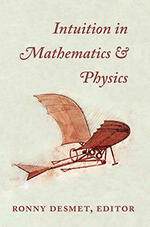 Intuition in Mathematics and Physics
Intuition in Mathematics and PhysicsRonny Desmet, ed., 2016
Despite the many revolutions in science and philosophy since Newton and Hume, the outdated idea of an inevitable war between the abstractions of science and the deep intuitions of humankind is reconfirmed, again and again. The history of science is interpreted and presented as a succession of victories over the army of our misleading intuitions, and each success of science is marketed as a defeat of intuition. Instead of endorsing the modern dogma that a truth cannot be scientific unless it hurts the deep intuitions of mankind, and that we cannot be scientific unless we tame the authority of our intuition, the authors of this collection highlight developments in 20th and early 21st century science and philosophy that have the potential to support, or even further, Whitehead’s philosophical integration of the abstractions of mathematics and physics with the deep intuitions of humankind. Instead of accepting the authority of science-inspired philosophers to reduce and disenchant nature and humankind in the name of our most successful scientific theories, the authors stress the contemporary relevance of Whitehead’s philosophical research program of thinking things together–science and intuition; facts and values–to promote the fundamental coherence that is required to start building an ecological civilization.
 Reforming Higher Education in an Era of Ecological Crisis and Growing Digital Insecurity
Reforming Higher Education in an Era of Ecological Crisis and Growing Digital InsecurityChet Bowers, 2016
As environmental changes are now directly impacting people’s lives there is a growing awareness that the high-status knowledge being passed forward by universities may be contributing to the double bind where university research is contributing to a better understanding of the scope and rate of environmental changes but, at the same time, universities continue to promote the deep cultural assumptions that gave conceptual direction and moral legitimacy to the industrial revolution that is now in its digital phase of globalization. Recent publications, as well as efforts in Third World countries to create their own alternatives to the Western model of a university, suggest we are on the cusp of an ongoing debate about the future of higher education and the reforms that should be undertaken. This book focuses attention the cultural and linguistic roots of the ecological crisis that have been ignored across the academic disciplines. It explores alternative pathways to living less consumer-dependent lives that have a smaller ecological footprint, and how the digital revolution is leading to the loss of important traditions such as democracy, privacy, and long-term memory.
 Protecting Our Common, Sacred Home:
Protecting Our Common, Sacred Home:Pope Francis and Process Thought
David Ray Griffin, 2016
As the world increasingly grapples with the consequences of global warming and its resulting climate changes, the urgency of the crisis has become inescapable, despite continuing corporate-led efforts at fomenting doubt and denial. Then in June 2015 there occurred a powerful intervention into the discussion by Pope Francis. His encyclical, Laudato Si’: On the Care for Our Common Home, called for swift action on climate change. Almost simultaneously with the official publication of this encyclical, there was the biggest-ever conference of the movement known as process thought, based primarily on the philosophy of Alfred North Whitehead. This conference discussed various ways in which process thought could be helpful with respect to the global environmental crisis, especially climate change.
In this book, David Ray Griffin undertakes to show why process thought–meaning process philosophy, theology, and social/economic thought–provides a natural and helpful context in which to expound and defend the ecological message in the pope’s encyclical. In concise arguments, Griffin shows that the position of Whitehead-based process thought on climate change and related matters is remarkably similar to that of Pope Francis in the encyclical. This similarity is important for two reasons. First, as process thought and the pope’s encyclical come out of very different traditions, the similarity allows each to add credibility to the other. Second, process thought, which embodies a long-standing type of philosophical theology that is consistent with today’s best science and has been growing in influence, can be used to support dimensions of the pope’s encyclical that might be rejected by secular minds.
 Educating for an Ecological Civilization:
Educating for an Ecological Civilization:Interdisciplinary, Experiential, and Relational Learning
Marcus Ford and Stephen Rowe, eds., 2017
The new form of civilization we so urgently need will require new ways of thinking and relating–ones that are more socially responsible, ecological, “mindful,” and coherent–and new ways of educating ourselves. The essays in this volume describe features of an emerging, relational vision of civilization and some of the educational practices it suggests. Note: The title of this book was previously announced as From Liberation to Civilization.
 Socialism in Process
Socialism in ProcessJustin Heinzekehr and Philip Clayton, eds., 2017
This collection of essays envisions an alternative economic system that preserves democratic, pluralistic values while avoiding consumerism and wealth disparity. Drawing on classic socialist texts such as Marx’s Capital, as well as the ecological philosophy of Alfred North Whitehead, the authors explore the merging features of a distinctively American socialism. Both theoretical foundations and practical applications are considered. In particular the authors demonstrate the strong and tragic connections between contemporary capitalism and the global climate crisis.
 Putting Philosophy to Work:
Putting Philosophy to Work:Toward an Ecological Civilization
John B. Cobb, Jr. and Wm, Andrew Schwartz, eds., 2018
Philosophy has gotten a bad rap. As an academic discipline, it is mocked as irrelevant to modern society. But bias against philosophy doesn’t mean we don’t have one. We all have a basic worldview. This is as true for whole civilizations as for individuals, a point driven home daily as the dire consequences of the Western worldview–the most urgent being climate change–are now inescapable. But if Western philosophy has brought us to this razor’s edge, would another one be any better? The twelve contributors to this book argue, yes: the process philosophy of Alfred North Whitehead. But what is process philosophy? This book is designed not only to answer the what, but also to demonstrate the how and why—how process philosophy provides a practical answer to so many of the potentially catastrophic issues now facing us, and why it is so urgently needed.
 Two Americas:
Two Americas:Liberal Education & the Crisis of Democracy
Stephen C. Rowe, 2018
There are two Americas at this point in history, with two very different worldviews. One is the modern view of separated individuals defined by their right to pursue and protect material well-being in a world of free market capitalism and unlimited natural resources. The second worldview is pluralistic and relational, committed to sustainable practices that are supportive of democracy and promote the common good.
These essays focus on the conflict between the two Americas as it is manifest in contemporary higher education. Higher education still stands as the gateway to adult life in a society that continues to assume an intimate connection between national well-being and educational opportunity. As such, it presents a way of understanding the underlying tension of American culture, and in some ways of global culture. Higher education itself can be an educative microcosm.
Widespread availability of liberal education is an essential component of any society that seeks to sustain democratic institutions. Democracy is a form of governance that requires an active and informed citizenry who share material resources sufficiently to enable all members of society to participate. A crisis in liberal education is therefore a threat to democracy. The survival of America–perhaps the world–turns on whether we can become aware of the limitations of the worldview we have inherited and choose a better one, one more conducive to life.
 Rebuilding after Collapse:
Rebuilding after Collapse:Political Structures for Creative Response to the Ecological Crisis
John Culp, ed., 2018
As society grapples with the reality of climate change, many believe that technology will somehow save the planet. As this book argues, that is not enough: larger-scale collaboration, coordination, and funding is needed. Individuals and groups, even with significant personal resources, will not be able to reverse the present course of ecological disaster. What our endangered planet needs is broadly supported community action, which is what happens when people come together and organize for the common good. What we need, in short, is political structures and actions. The essays in this book examine the political structures that have led to our present crisis and offer concrete lessons from the U.S., Japan, Brazil, and Greece, that can, if heeded, bring us back from the brink and toward an ecological civilization.
 What Is Ecological Civilization?
What Is Ecological Civilization?Crisis, Hope, and the Future of the Planet
Philip Clayton and Wm. Andrew Schwartz, 2019
The present trajectory of life on this planet is unsustainable, and the underlying causes of our environmental crisis are inseparable from our social and economic systems. The massive inequality between the rich and the poor is not separate from our systems of unlimited growth, the depletion of natural resources, the extinction of species, or global warming.
As climate predictions continue to exceed projections, it is clear that hopelessness is rapidly becoming our worst enemy. What is needed urgently is a new vision for the flourishing of life on this planet, a vision the authors are calling an ecological civilization. Along the way they have learned that this term brings hope unlike any other. It reminds us that humans have gone through many civilizations in the past, and the end of a particular civilization does not necessarily mean the end of humanity, much less the end of all life on the planet. It is not hard for us to conceive of a society after the fall of modernity, in which humans live in an equitable and sustainable way with one another and the planet.
This book explores the idea of ecological civilization by asking eight key questions about it and drawing answers from relational philosophies, the ecological sciences, systems thinking and network theory, and the world’s religious and spiritual traditions. It concludes that a genuinely ecological civilization is not a utopian ideal, but a practical way to live. To recognize this, and to begin to take steps to establish it, is the foundation for realistic hope.
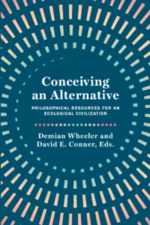 Conceiving an Alternative:
Conceiving an Alternative:Philosophical Resources for an Ecological Civilization
Demian Wheeler & David E. Conner, eds., 2019
This book contends that philosophy can help us formulate and defend more adequate, plausible, and beneficial outlooks on the natural world and the place of human beings within the community of earthly creatures. The essays in this volume are not limited to any single theme or subject. Some of the chapters are focused on the impact of various philosophical perspectives on environmentalism. Others roam into issues of Western philosophy stretching all the way from Plato and Aristotle to Bergson and Whitehead. Notwithstanding this diversity of topics, all of the authors attempt in varying ways to draw conclusions that are relevant to a renewed commitment to the health of planet Earth. The shared goal of all the chapters is to find new philosophical and theological inspiration as we human creatures seek to respond imaginatively, constructively, and creatively to the ecological issues of our age, recognizing that we desperately need to conceive an alternative to the pervasive worldviews that have led our civilization to the brink of catastrophe.
 Rethinking Consciousness:
Rethinking Consciousness:Extraordinary Challenges for Contemporary Science
John Buchanan & Christopher Aanstoos, eds., 2020
In ten chapters, contributed by leading parapsychologists and philosophers, These essays explore experiences that present significant challenges to the modern scientific worldview, in particular, to its insistent refusal to reconsider its underlying commitment to a materialistic, mechanistic, atheistic metaphysics. Philosophically, Alfred North Whitehead’s process view of experience is described as being more congenial not only to extraordinary experience, but to the current state of scientific research, which has revealed that activity, selection, and response are facets of every level of reality from the quantum event to the neural cell. Ironically, the only part of our world whose synthetic responsiveness whose “subjectivity” is regularly called into question by the academy is the human subject. And the primary reason for this most peculiar situation is modern science and philosophy’s largely unconscious metaphysical allegiance to one-half of an abandoned Cartesian dualism, which in practice is no longer accepted by any scientific discipline. Nonetheless, try to assert some idea that does not cohere with this assumed notion of reality and prepare to be informed it is “impossible,” while at the same time being told that this response is not related to any preexisting metaphysical sentiments.
 Unprecedented Evolution:
Unprecedented Evolution:Continuities and Discontinuities between Human and Animal Life and the Future of Humanity
Spyridon A. Koutroufinis and Rene Pikarski, eds., 2020
The authors of these essays examine core dimensions of the human condition in light of biophilosophy and process metaphysics, which they apply to such core anthropological issues as the survival of both the human species and the biosphere as a whole. With a general focus on the unique capacity for symbolization as marking an important and influential factor in human evolution, the authors address key issues in biophilosophy, such as the specific ways we differ from other species, our capacity to symbolize and create a helpful or dangerous distance from life, and our playfulness and proclivity for mythmaking. Questions addressed include the following:
How did symbolic thought shape the evolution of the human species?
How did symbolic systems shape human experience of and reasoning about space, time, matter, life, and natural processes?
How do our unique forms of power relations distinguish humans from other species?
How do our spiritual and metaphysical belief systems influence human rationality and morality?
How can we balance our spiritual needs with our rational abilities, and how could this influence our future evolution?
How should we respond to the trends towards transhumanism and bio-technocracy?
 Nature in Process:
Nature in Process:Organic Proposals in Philosophy, Society, and Religion
Andrew M. Davis, Maria-Teresa Teixeira, & Wm. Andrew Schwartz, eds., 2022
The new physics, beginning in the early twentieth century, caused a rupture in the longstanding mechanistic paradigm of Descartes and Newton, opening up novel paths of discovery and new possibilities for deeper, organic ways of knowing and living. The emergence of Alfred North Whitehead’s “philosophy of organism” was contemporary to the new physics and responded with a truly organic vision of nature through rigorous philosophical scrutiny, scientific critique and imagination generalization. Whitehead effectively saw that addressing the mechanistic rupture required an innovative, organic departure. His critique of abstractions, his refusal to bifurcate nature, and his famous formulation of the “fallacy of misplaced concreteness” unveiled the inadequacies of mechanistic thought and the interdisciplinary value of a new organic paradigm. Written by scholars around the world, the proposals that comprise this volume follow in Whitehead’s footsteps in calling for an organic reconception of our philosophical, societal, and religious disciplines. Far from ousting creativity, experience, mind, feeling, and value, the organic shift represented in these chapters reintegrates what was lost in the mechanistic paradigm.

